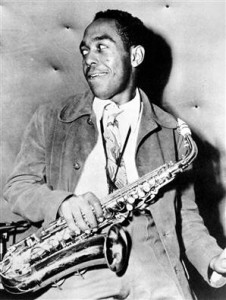Charlie "Bird" Parker, a name synonymous with the golden age of jazz, transformed the music world through his innovative approaches to melody, rhythm, and harmony. His virtuosity on the alto saxophone and groundbreaking improvisational techniques breathed new life into jazz music, setting a precedence for future generations of musicians. Born on August 29, 1920, in Kansas City, Kansas, Parker's journey was that of legends, one punctuated by boundless creativity, personal turmoil, and an untimely death at the age of 34.
In his formative years, Parker was introduced to music through his parents, Charles Parker and Addie Parker, both of whom were musically inclined. Young Charlie was enrolled in music classes, and by the time he reached his teenage years, he had developed a penchant for the saxophone, with early influences including Lester Young and Buster Smith. It was during these early years that Parker began honing his skills, a journey that would see him become one of the most influential musicians of the 20th century.
As Parker matured into a young adult, so did his music philosophy. It was during the 1940s, a period marked by the evolution of jazz from big band swing into a more improvisational and complex form known as bebop, that Parker came into his own. Together with other jazz luminaries such as Dizzy Gillespie, Bud Powell, and Thelonious Monk, Parker spearheaded the bebop movement which emphasized fast tempo, intricate melodies, and complex chord progressions.
Through his innovative approach to improvisation, wherein he employed extended chords, altered scales, and breaking traditional chord progressions, Parker etched his name into the annals of jazz history. Songs such as "Ornithology," "Yardbird Suite," and "Ko-Ko" became iconic embodiments of the bebop era, exhibiting Parker's technical prowess and his inventive and often mesmerizing improvisational style.
Parker's nickname, "Bird," which is thought to have been derived from "Yardbird," was both a testament to his freedom in musical expression and possibly a nod to his free-spirited personality. He was known for his vivacity both on and off stage, a character that lived life on his terms, seeking depth and innovation in his music while grappling with personal demons including drug addiction and tumultuous relationships.
Beyond his contributions to bebop, Parker explored various musical frontiers, including fusing jazz with other musical genres such as classical and Latin music. Projects such as the "Charlie Parker with Strings" showcased his versatility and creative vision, as he orchestrated jazz music with string ensembles, bringing a fresh perspective to jazz interpretations.
Moreover, his impeccable technique, rich tone, and fluid style on the alto saxophone raised the bar for instrumentalists in jazz, influencing generations of saxophonists and other instrumentalists in varying genres.
Charlie "Bird" Park"’s "iParker'sed by unprecedented highs and tragic lows, was a reflection of the fervent pace of bebop — a genre he helped sculpt. His relentless pursuit of musical innovation redefined the boundaries of jazz, earning him a spot among the greatest musicians of the 20th century.
Parker’s deParker'sfrom this world on March 12, 1955, marked the end of an era, yet his legacy endures, living on in the vibrant, complex, and evocative compositions and improvisations that continue to inspire and captivate musicians and audiences worldwide. Charlie "Bird" Park" is a towering figure in the world of music, a luminary whose fiery spirit and groundbreaking artistry continue to resonate, epitomizing the very essence of jazz — freedom, innovation, and expression.















0 comments:
Post a Comment